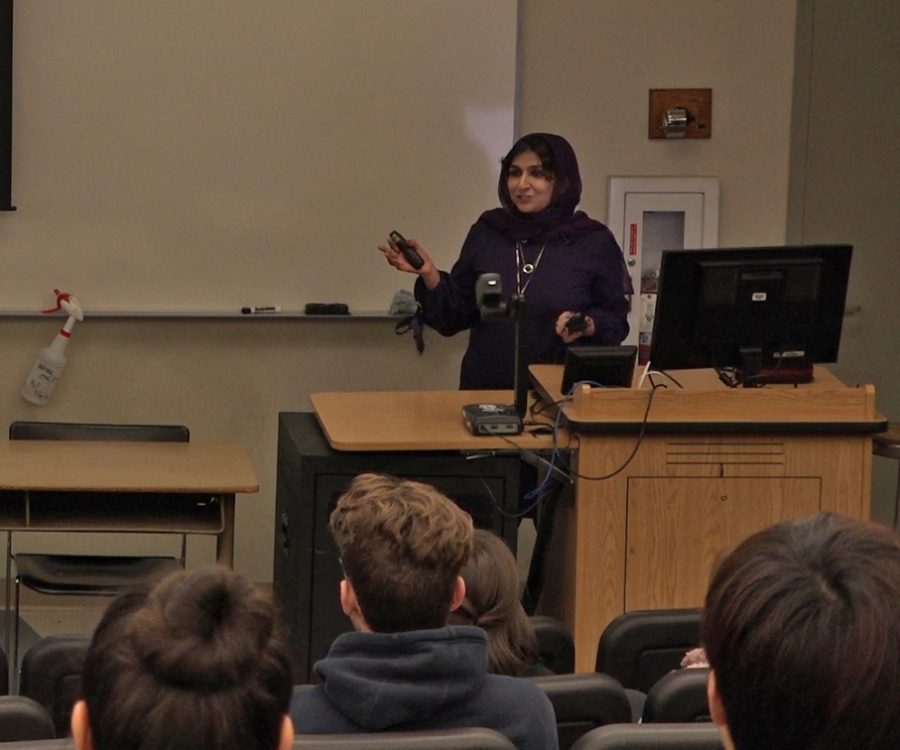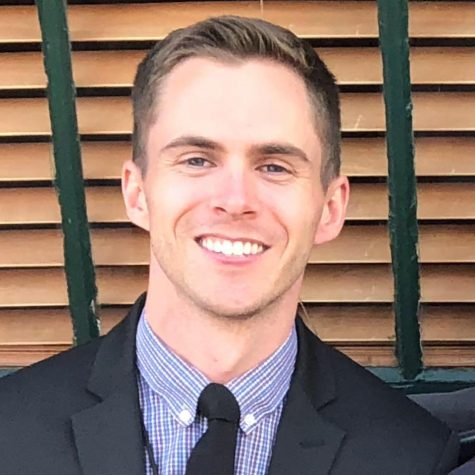According to the National Institute of Mental Health, of the 45 million Americans living with mental illness, 26 million are not seeking treatment. Of those, one in four also suffer from substance abuse.
Students interested in learning how the brain responds to mental illness and addiction gathered during biology professor Dr. Saima Anjum’s presentation on Feb. 26.
“This is real. The brain is going through changes,” Anjum expressed.
The presentation, put on by the STEM (Science, Technology, Engineering, and Mathematics) Lecture Series, focused on the causes, effects, and stigmas that leave so many at risk.
“I was not aware of the importance of this topic until someone very significant went through this problem,” Anjum revealed, as she opened the discussion. “I realized it was hard for me to accept this as a challenge — that is this a disease, or not?”
Scientists believe that depression is caused by an imbalance in serotonin-like chemicals in the brain. The role of antidepressant medications is to target these areas and balance those chemicals. Each antidepressant goes about this in its own way, which is why each medication can affect people differently. Finding the right match for the patient is done case by case.
Students were presented with evidence of how the brain operates under different circumstances. PET scans are used to capture images of radioactive “tracers” that help doctors identify which areas are functioning correctly and which are revealing a decrease in activity.
Wanting to distinguish drug addiction from mental illness, while also pointing out the correlation, Anjum compared a healthy brain with others performing at lower levels of activity. In both depressed and bipolar patients, only a small portion of the brain was shown to be signally activity. This is in contrast to the schizophrenia and OCD patients which were shown to experience over-activity in the brain.
Over-activity is also seen with cocaine and methamphetamine use. These stimulants disrupt the natural process of neurotransmitters exchanging neurons, causing a buildup of dopamine and as a result, an intensified reaction in the brain’s reward system.
The reward system, normally triggered by activities like eating, drinking water, and sexual activity, showed a spike during marijuana (THC) use. While the recreational drug also affects judgement, movement, coordination, and memory, dependence is not a factor. Heroine, morphine, and opioids were shown to affect judgement, movement, and pain management.
Brain activity decreased in those using alcohol, THC, opioids, cocaine, and methamphetamine. While THC showed less damage than more serious drugs, all showed a noticeable change.
With students now understanding how the brain responds, Anjum expanded on what causes people to develop a mental illness. Three major factors that lead to mental health issues are genetics, social circumstances, and environment. And the stigma is made apparent when looking at the 70% of young people who don’t seek treatment.
“I believe that mental illness events held on campus help address the stigma around people seeking help,” stated kinesiology major Brooke Johnson. “It’s a serious topic, especially among college students.”
To wrap up the presentation, Anjum reminded the audience to seek help if they are struggling. In addition, the professor reiterated that mental illness is treatable and should not be ignored.
Inspired by her education, Anjum shared that she believes she was born to learn and share that knowledge with others. This event was a testimony to just that.
Crisis counseling is available for free to students in the Student Services Health Center (I4-209) from 8 a.m. to 5 p.m. Monday through Thursday and 8 a.m. to noon on Friday. Both appointments and walk-ins are available. A 24-hour hotline can be reached at (888) 724-7240.


